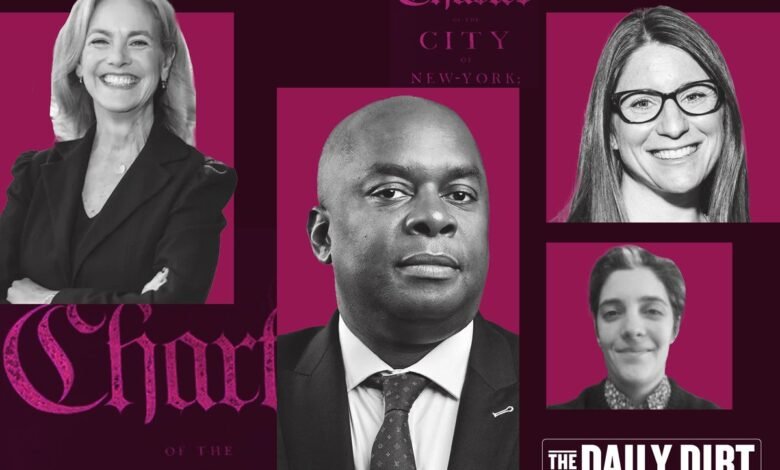Is New York City Charter Revision a Game-Changer?


At first glance, I wasn’t blown away by changes to the land-use process advanced by the City Charter Revision Commission. Then I looked again.
Some of the land-use proposals were expected: Faster, easier pathways to approval for affordable housing, for clearly beneficial infrastructure projects and for small developments.
But I was most interested in how the commission would allow large housing projects to win rezonings without being whittled down or killed by the local City Council member.
There are two ways. The first fast track would be for Mandatory Inclusionary Housing projects in the 12 community districts that produced the least affordable housing in the previous five years, which I would call the Dirty Dozen. The review for such projects would be 90 days (rather than the usual five to seven months) and end with the City Planning Commission, not the City Council.
The second end-run around member deference is an appeal process for rezonings that are shot down by the Council. Appeals would be heard by a three-member panel including the City Council speaker, the relevant borough president and the mayor.
It would take two votes out of three to overturn a decision.
The very prospect of being overturned could persuade a local City Council member to negotiate in good faith, rather than lose control of the process.
I would still expect many Council members to risk being overturned on appeal rather than stand up to NIMBYs or to anti-gentrification activists in their districts. Most politicians are primarily concerned about being re-elected, and loud voices scare them.
(Note: Brooklyn’s Shahana Hanif stood up to NIMBYs in her district and was handily re-elected despite a well-funded opponent. But this will have to happen more often for members to routinely stand up for housing.)
How often would developers win on appeal?
Borough presidents often recommend projects be downsized, and Council speakers don’t like to override members who are loyal to them. So in many cases, an appeal would fail.
But with a pro-housing mayor such as Eric Adams, a pro-housing borough president such as Brooklyn’s Antonio Reynoso or Manhattan’s Mark Levine and a pro-housing Council speaker such as Adrienne Adams, their odds of getting at least two “yes” votes would be excellent.
What we’re thinking about: When the divorcing couple Hugh Jackman and Deborra-Lee Furness sold their 4,675-square-foot condominium unit at 100 11th Avenue in Chelsea for $23.6 million, the LLC that bought it had the same lawyer and address as the LLC that sold it.
As TRD reported, public records pegged the sale price of the penthouse at $23.6 million, but the deed puts the price as $11.7 million, almost exactly half as much.
Was this a sale to a third party, or was it a sale between Jackman and Furness to divvy up their assets? If the latter, it was an expensive transaction: The transfer taxes totaled $627,578. Isn’t it possible for a couple to divide a property without paying transfer taxes?
Send your thoughts to eengquist@therealdeal.com.
A thing we’ve learned: RTL, an acronym for right-to-life, has a different meaning in real estate: residential transition lending. Morningstar DBRS and Katten hosted an RTL panel discussion last month in Manhattan that filled every seat in the room. Panelists agreed that high housing prices and low supply have made RTL a more appealing asset class, and that the introduction of ratings for RTL bonds has allowed sovereign funds, asset managers and insurance companies to invest in them.
Elsewhere…
Southold Town, which makes up most of the North Fork, is doing a comprehensive rezoning. It is (in theory) trying to allow for more affordable housing because hiring wage workers is an immense challenge for local businesses.
The town sent residents a questionnaire to gather feedback. One question was:
Do these zoning updates help retain the character of the Southold you know and love?
I replied: “This is a loaded question because even if I love the local character, I am open to changes to allow for more rental units.”
Another query:
Do the proposed zoning updates adequately address concerns related to traffic congestion and pedestrian safety?
My answer was what you might expect for someone who spent half a century in New York City: “There is no traffic congestion in Southold.”
Closing time
Residential: The top residential deal recorded Tuesday was $21.5 million for a 4,492-square-foot condominium unit at 111 West 57th Street in the Plaza District. Nikki Field and Ben Pofcher of Sotheby’s International Realty had the listing.
Commercial: The top commercial deal recorded was $18.5 million for seven commercial lots at 58 West 58th Street in Midtown. Vornado sold the properties to an entity tied to Sedesco Holdings.
New to the Market: The highest price for a residential property hitting the market was $12.5 million for a 3,764-square-foot condominium unit at 1 Central Park West in Lincoln Square. Janice Chang and Emily Nodell Sobol of Douglas Elliman have the listing.
Breaking Ground: The largest new building application filed was for a proposed 10,668-square-foot, four-story residential project at 31-45 14th Street in Long Island City. Hanli Liu of Halo Architecture filed the permit on behalf of Kevin Zambrana.
— Matthew Elo




